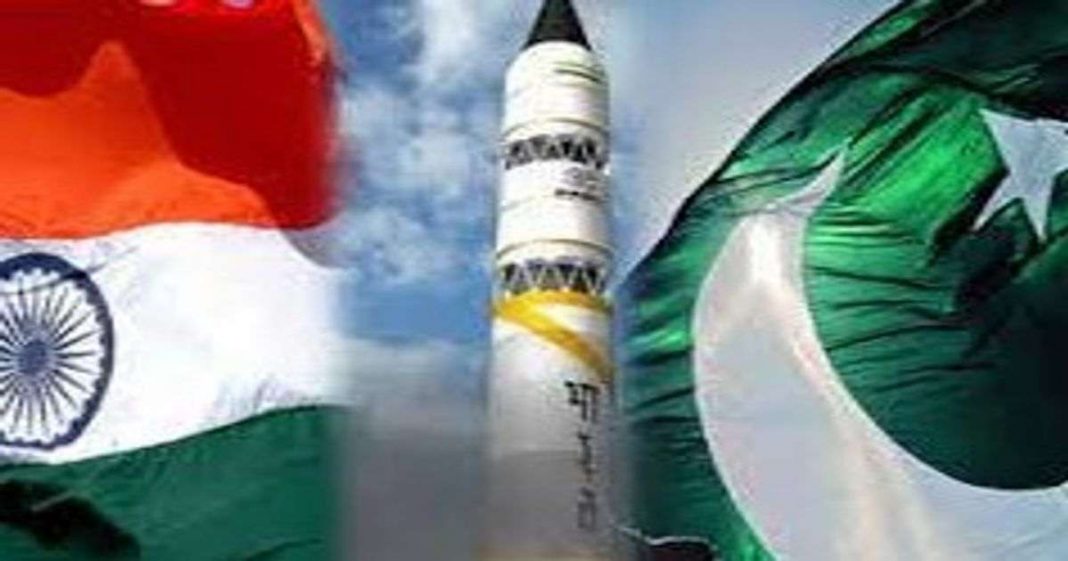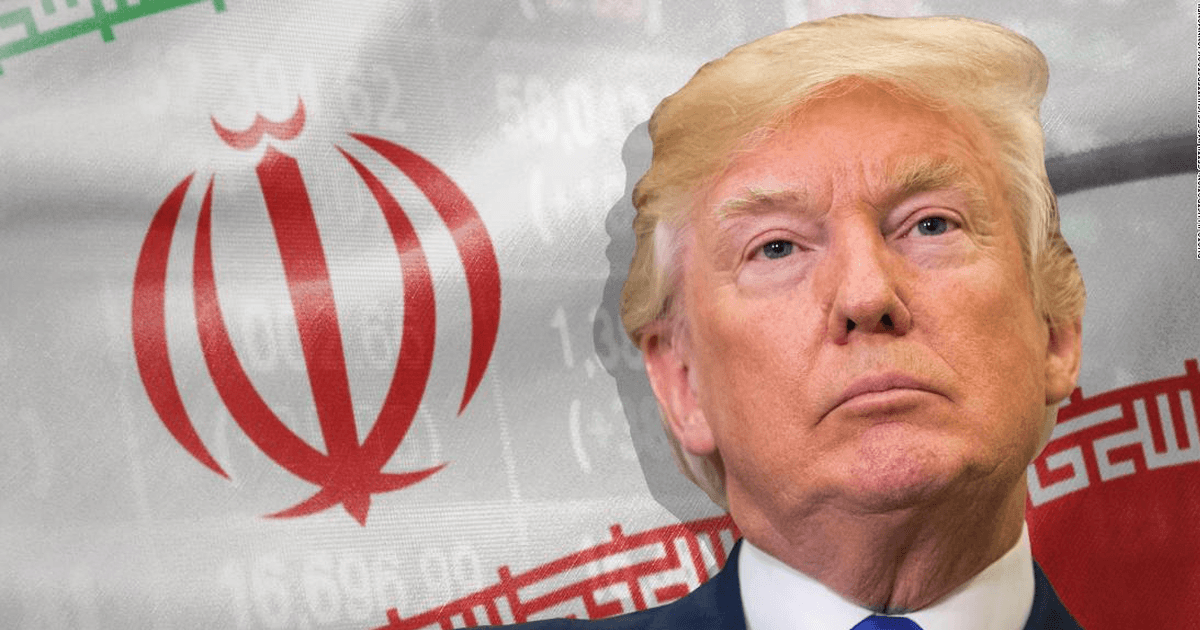The nuclearization of South Asia started in 1974 when India made its first nuclear test under the name ‘Smiling Buddha’. Although India started its program to become a regional hegemon, its initial stance was that its nuclear capability is for peaceful means. Yet Pakistan being the next-door neighbor fell into a security dilemma and perceived threat from India.
In 1998 India tested weaponized nuclear warheads in its ‘Operation Shakti’ which meant that India is now a nuclear weapon state. Shortly after India’s tests, Pakistan also conducted nuclear tests in 1998 declaring itself as a nuclear-weapon state too.
The nature of the conflict between the two states is territorial mostly and they have already fought three major wars and multiple minor conflicts due to geographic proximity.
Read more: Operation Shakhti: When India tested a nuclear device on its people
Arguments on nuclear weapons
India is the first South Asian state to acquire nuclear weapons and Pakistan is the only Muslim state to acquire nuclear weapons. But are their nuclear weapons for better or for worse?
There are two arguments, nuclear pessimism, and nuclear optimism. According to pessimists, since both the states have acquired nuclear weapons it has increased the threat of a nuclear war instead of maintaining strategic stability. On contrary, the optimists claim that both the states have decades-old enmity so possessing nuclear weapons actually ensures strategic stability.
Credible nuclear deterrence is ensured when a state can maintain three things; prevention of Preventive War; development of second-strike capability; and avoidance of accidental war.
Preventive war is an offensive action to end a developing threat before it creates trouble in the future. For optimists, the threat of preventive war existed when Pakistan was making a nuclear weapon but now it does not persist. But for pessimists, the military organizational behavior in India and Pakistan is making the threat of preventive war stand.
Read more: India ‘more likely’ to use military force against Pakistan: US report
The optimists argue that it was impossible for Pakistan to compete with India conventionally because the latter is economically and militarily stronger so it was necessary for Pakistan to acquire nuclear weapons. Now both states can equally compete on a strategic level but this is very less likely to happen as maintaining strategic stability is a priority.
The pessimists are skeptical about Pakistan’s tendency to attack with preventive war because of how its military command and control are under the greater influence of armed forces, unlike India. Optimists contend that deterrence does not depend upon who is deterring who.
The character or leadership of a state does not matter when a state has nuclear weapons. Even if the leadership has an aggressive and irrational mindset, everyone is aware of the destructive consequences so an irrational leader will also act rationally.
Read more: Op-ed: In quest to win power, leaders often generate huge problems
India’s destabilizing military strategy
Pessimists contend that India is always trying to provoke Pakistan which could be seen during 1986-87 when Indira Gandhi was in government and lost her domestic support because the military was in control. This resulted in a brass-tack crisis which was purely a military decision. Around 250,000 troops undertook massive military exercises at Rajasthan along with 1500 tanks.
Although India claims that it was just a military exercise but Cold Start or Sundar Ji doctrine reveals India’s intention of initiating a comprehensive attack on Pakistan. Lt. Gen P.N. Hoon of the Indian Army revealed in his book, “Brasstacks was the army’s preparation for a war against Pakistan and not a military exercise.”
The optimists assert that when South Asia was not nuclearized, the military deterrence was very low, resulting in three conventional wars, but now India and Pakistan will not end up in an all-out conflict. However, the optimists do partially agree with the pessimist argument of the threat to South Asian stability but in terms of tactical instability.
After the acquisition of nuclear weapons, strategic stability is ensured but it brought tactical instability in the region which was substantial before. Now border skirmishes occur frequently, leaving thousands of civilians and soldiers at risk on both sides.
Read more: Why is India moving heavy weapons towards Pakistan border?
The missile defense system is the greatest threat to the strategic stability of South Asia because if India fully develops the capability then Pakistan’s nuclear warheads will become irrelevant and the concept of mutually assured destruction will also be of no use. This in turn will give India the margin to start a preventive war by using its first-strike capability. It will also hamper Pakistan’s second-strike nuclear capability thus affecting South Asia’s nuclear deterrence.
The geographic proximity is a considerable reason that accidental war is very likely to happen e.g. if Pakistan is testing its missile then India might perceive it as a threat of preparation of attack and might as well launch a missile to retaliate. Any false intelligence report can also initiate an accidental war leaving states with no time to exchange messages.
In my opinion, the arguments posed by nuclear optimists are much more relevant. Pessimists’ explanation about the threat to strategic stability is mostly tilted towards Pakistan and its weaknesses. However, optimism maintains a balance between the two nuclear-weapon states in cultivating the strategic stability of South Asia.
We all are aware of the Indian extremist motives and the dream of Akhand Bharat which pretty much predicts that any future war would be initiated from India and less likely from Pakistan.
Many many happy returns of the day Former CM of Maharashtra, Shri @Dev_Fadnavis Ji.
Your altruistic nature & firm belief in the idea of reunified Akhand Bharat makes you a great leader. May Ishwar helps you succeed in all walks of life. pic.twitter.com/gkTeC7lR4W
— Shwait Malik ( Modi ka parivar ) (@shwait_malik) July 22, 2021
In the current scenario, there are clear intentions of Indian BJP, hijacked by RSS of which the present PM himself is a fundamentalist member. The abrogation of articles in terms of Kashmir did agitate Pakistan a lot but the reaction could not be very aggressive because now it is difficult to wage a war due to the destructive consequences.
So it could be concluded that the presence of nuclear weapons in the South Asian region has maintained strategic stability as proposed by nuclear optimism. The pessimist argument that nuclear weapons are posing a threat is significant but a proper war is very unlikely to happen, at least not until the missile defense system is acquired by India. Deterrence does not mean war cannot break out but it does mean that it is least likely to happen. In the current scenario, the strategic stability of South Asia is guarded.
The author is a columnist based in Islamabad. Her area of interests are terrorism and nuclear studies. She can be reached at kashafsohail26@icloud.com. The views expressed in the article are the author’s own and do not necessarily reflect the editorial policy of Global Village Space.














